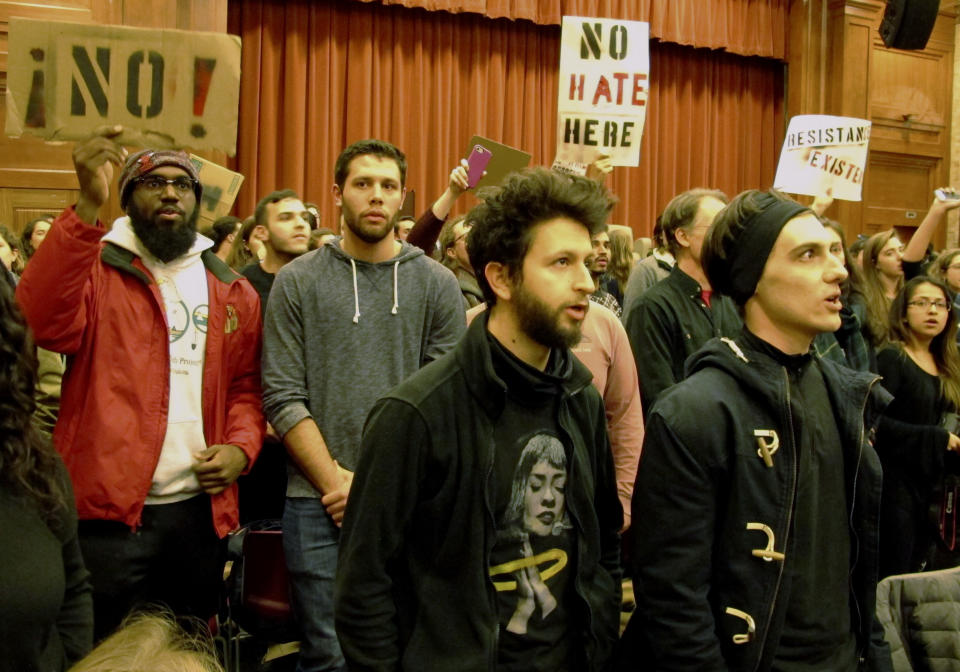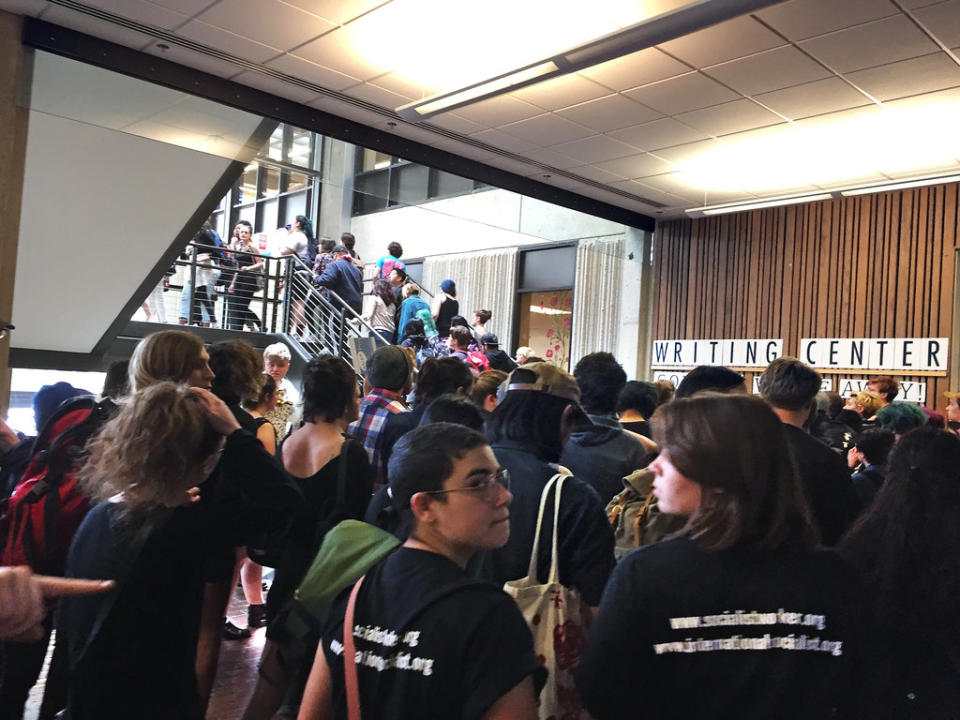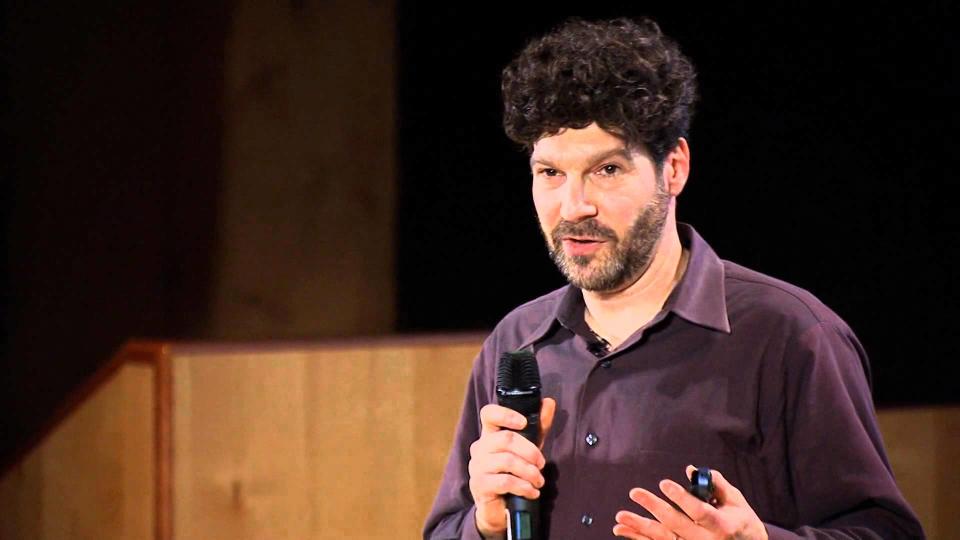In a philosophical mood, Congress debates freedom of speech on campus

WASHINGTON — Only the cheap beer was missing. Like a classic college bull session, Tuesday’s congressional hearing on free speech in higher education included some rancor, some laughter and more than a little intellectual showboating. There were allusions to the severe ethical code of Immanuel Kant and a debate about classifying the economist Adam Smith as a liberal or conservative, which was settled by one of the witnesses called to testify at the hearing, Princeton legal scholar Robert P. George: liberal, but of the classical variety.
It was a newer, more confrontational breed of liberal that was largely on trial during Tuesday’s hearing, which was convened by the House Oversight Committee’s Subcommittee on Healthcare, Benefits, and Administrative Rules. The subcommittee is chaired by Rep. Jim Jordan, R-Ohio, and a leader of the far-right Freedom Caucus. Also in attendance were Mark Meadows, R-N.C., and David Brat, R-Va., fellow Freedom Caucus members who wanted to know why campuses all over the nation, from Berkeley to Dartmouth, had become hostile to conservatives and conservative ideas. Two of the legislators present were graduates of Harvard, that embodiment of coastal elitism: Elise Stefanik, R-N.Y., and Jamie Raskin, D-Md.
The hearing room was packed with college students, some of whom wore T-shirts that said “I support free speech, not political correctness” and “The answer is more speech,” both slogans favored by a recrudescent conservative movement on college campuses, which has assiduously chronicled the supposed excesses taking place in the groves of academe. These are said to include conservative speakers being shouted down, students at Oberlin protesting “cultural appropriation” in their cafeteria menus, and the decision by Hampshire College to stop flying the American flag. Fed a stream of such stories by sites like College Fix and College Reform, these new culture warriors have declared war on what they see as an oppressively liberal atmosphere where fears of “micro-aggressions” and accusations of “white privilege” have suffocated the very possibility of free inquiry — and free speech.

In true academic fashion, little was resolved in this second of two hearings on collegiate free speech by the House Oversight subcommittee. There’s no clear plan to deal with what George, the Princeton professor, called “the ideological imbalance in the academy.” One proposal is that universities, in particular public ones, should be deprived of public funds if they fail to show political parity in the professors they hire and the speakers they bring to campus. Stefanik, the New York Republican, argued that “it is the federal dollar that’s underpinning” every university, including private ones like her alma mater, Harvard, which in recent years has received about a half-billion dollars annually in research grants. The Trump administration had previously proposed taxing the endowments of colleges, a measure that would primarily affect elite private universities in the Northeast, which conservatives view as festering swamps of liberal orthodoxy.
Defunding colleges may seem like an extreme solution, but for Republicans like Jordan and Stefanik, the ailing American college demands a radical cure. At the table of witnesses on Tuesday was Bret Weinstein, the former Evergreen State College professor who became an inadvertent hero of the right for standing up to campus activists who sought to expel whites for a day from the famously progressive Washington state campus. He described how both he and students who supported him — including students of color — were shouted down by the activists. “If not discussion,” Weinstein wondered in his testimony on Tuesday, “then what do they want?” To some on the committee, the answer was obvious: the final triumph of political correctness. The recent advent of “bias-response teams,” which monitor campuses for offensive behavior, has only bolstered that fear.

Even those who don’t necessarily take their cues from the editorial page of the Wall Street Journal share these concerns. “Nothing less than free inquiry and the civil discourse on which American constitutional democracy depends is at stake,” said Allison Stanger of Middlebury College. Early last year, Stanger was injured when a student protest of a talk by the conservative thinker Charles Murray — co-author of “The Bell Curve,” the provocative 1994 book about race, class and intelligence — turned violent. On Tuesday, Stanger — a political liberal — urged the legislators seated before her to “defend truth and defend the republic,” intimating just how high the stakes had grown.
But a conviction that something is amiss is unlikely to produce any meaningful change, since there is no consensus even on the scope of the problem, not to mention the potential remedy. This was best exemplified by the treatment of Sean R. Harper, head of the Race and Equity Center at the University of Southern California, and the lone African-American witness. While he made clear that he wanted universities to remain “marketplaces of contested ideas,” he also suggested that the plight of the conservative speaker had been exaggerated and dramatized, while American colleges could do more to welcome and encourage students of color. As the only witness expressing such a view, Harper attracted inordinate hostility from the Republican members of the committee, giving a hint of just how difficult any serious national conversation about higher education would be.
At one point, during a particularly testy exchange with Rep. Gary J. Palmer, R-Ala., Harper found himself interrupted by the legislator as he attempted to explain why he wouldn’t answer a question with a simple yes or no. “I am not allowing you to speak,” Palmer snarled, explaining that he was doing to Harper what liberal students were doing to the conservative peers. Later, Palmer also interrupted Stanger after she’d uttered the word “crazy” in the midst of her comments. “At Smith College, crazy is a banned word,” Palmer informed her (incorrectly). Jordan questioned Harper about bias-response teams, depicting them, over Harper’s objections, as a sort of politically correct campus police force.

There were also a few lighthearted moments, as when Meadows produced a large poster showing a free-speech zone, leading Jordan to wonder how close a free-speech zone could be to that other much-mocked appurtenance of the modern-day university, the safe space. No consensus was reached, though his point was made. Raskin suggested that as an alternative to banning certain speakers, students could revive “the delicate and subtle art of heckling.”
Brat, an economist by training, launched into an extended riff on philosophy. The monologue may have had little to do with the subject at hand, jumping as it did from Kant to St. Augustine, but it was a refreshing reminder that even this beleaguered Congress, given so easily to mean-spirited bloviation, can sometimes stumble into a more rarefied realm of discourse.
That was not lost on the legislators present, who would soon be thrust back into the world of presidential tweets and cable news clips. “It’s one of the best hearings I think I’ve been involved in in a year and a half in Congress,” said Paul Mitchell, R-Mich. “It truly has. It’s a great discussion.” As for a solution, that remains somewhere in the future.
Read more from Yahoo News:


